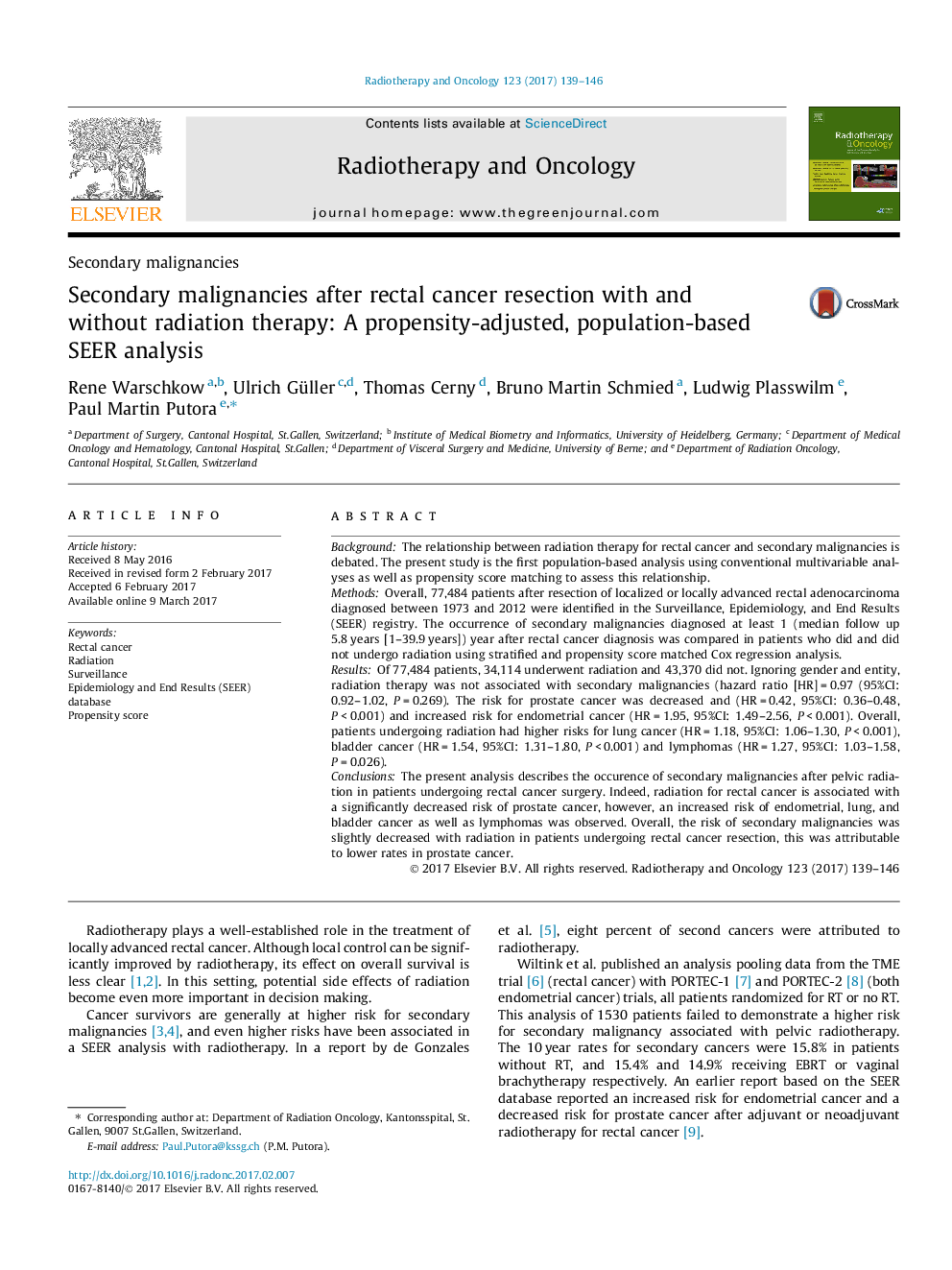| کد مقاله | کد نشریه | سال انتشار | مقاله انگلیسی | نسخه تمام متن |
|---|---|---|---|---|
| 5530002 | 1401711 | 2017 | 8 صفحه PDF | دانلود رایگان |

BackgroundThe relationship between radiation therapy for rectal cancer and secondary malignancies is debated. The present study is the first population-based analysis using conventional multivariable analyses as well as propensity score matching to assess this relationship.MethodsOverall, 77,484 patients after resection of localized or locally advanced rectal adenocarcinoma diagnosed between 1973 and 2012 were identified in the Surveillance, Epidemiology, and End Results (SEER) registry. The occurrence of secondary malignancies diagnosed at least 1 (median follow up 5.8Â years [1-39.9Â years]) year after rectal cancer diagnosis was compared in patients who did and did not undergo radiation using stratified and propensity score matched Cox regression analysis.ResultsOf 77,484 patients, 34,114 underwent radiation and 43,370 did not. Ignoring gender and entity, radiation therapy was not associated with secondary malignancies (hazard ratio [HR]Â =Â 0.97 (95%CI: 0.92-1.02, PÂ =Â 0.269). The risk for prostate cancer was decreased and (HRÂ =Â 0.42, 95%CI: 0.36-0.48, PÂ <Â 0.001) and increased risk for endometrial cancer (HRÂ =Â 1.95, 95%CI: 1.49-2.56, PÂ <Â 0.001). Overall, patients undergoing radiation had higher risks for lung cancer (HRÂ =Â 1.18, 95%CI: 1.06-1.30, PÂ <Â 0.001), bladder cancer (HRÂ =Â 1.54, 95%CI: 1.31-1.80, PÂ <Â 0.001) and lymphomas (HRÂ =Â 1.27, 95%CI: 1.03-1.58, PÂ =Â 0.026).ConclusionsThe present analysis describes the occurence of secondary malignancies after pelvic radiation in patients undergoing rectal cancer surgery. Indeed, radiation for rectal cancer is associated with a significantly decreased risk of prostate cancer, however, an increased risk of endometrial, lung, and bladder cancer as well as lymphomas was observed. Overall, the risk of secondary malignancies was slightly decreased with radiation in patients undergoing rectal cancer resection, this was attributable to lower rates in prostate cancer.
Journal: Radiotherapy and Oncology - Volume 123, Issue 1, April 2017, Pages 139-146